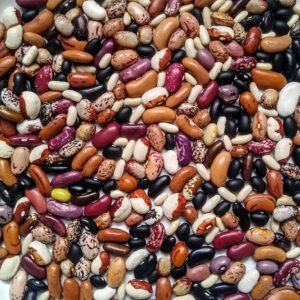
Cross-posted from the University of Wisconsin – Madison’s College of Agricultural and Life Sciences
By Nicole Miller
Plant breeders who develop new vegetable varieties for organic farming systems are far and few between. The same goes for graduate students who want to go in that line of work. They can feel rather isolated—even at schools with large plant breeding programs.
After last week’s Student Organic Seed Symposium, however, these distances may not feel quite so far.
For three days last week, 20 graduate students from around the nation—including five from CALS—gathered in Greensboro, Vermont to meet and mingle, discuss their breeding projects and learn from experts and business owners in the field. The symposium, which was the first of its kind in the nation, was conceived and organized by three CALS graduate students affiliated with the plant breeding program: Claire Luby, Alex Lyon and Adrienne Shelton.
“It was really cool when we came up with our list of presenters and contacted them, and within four days we’d heard back from every one of them with an enthusiastic ‘Yes, I’ll be there!’ These people are the rock stars in the field,” says Shelton.
Speakers with ties to the UW-Madison included agronomy chair Bill Tracy, a sweet corn breeder; horticulture chair Irwin Goldman, a beet and onion breeder; Jack Kloppenburg, professor of community and environmental sociology; CALS alum John Navazio, senior scientist for Organic Seed Alliance and extension specialist in plant breeding and seeds for Washington State University; and CALS alum Jared Zystro, a research and education specialist at the Organic Seed Alliance. Lecture topics ranged from how to collaborate with farmers on breeding projects to in-field experimental designs to job prospects for new PhDs.
The symposium included tours of organic farms and organic seed production operations in the area, including a day-long tour of High Mowing Organic Seeds led by company owner Tom Stearns, an enthusiastic supporter of organic and local agriculture who is well known for championing “agripreneurial” efforts in the Hardwick, Vermont area.
Throughout the symposium the students had ample time to interact amongst themselves, as well as with the speakers, and by the third day everybody had a strong sense that they had participated in something extremely valuable—the creation of a new, nation-wide community to support the development of young organic plant breeders. By the end, plans had already been laid for a second annual Student Organic Seed Symposium in Washington state next summer.
